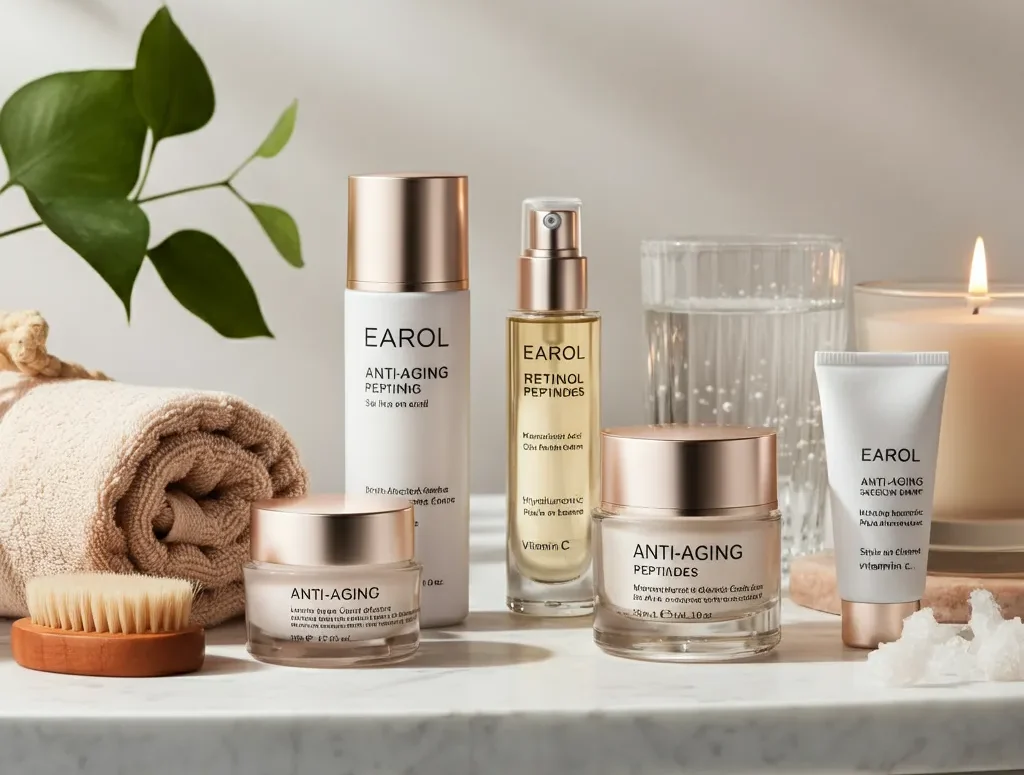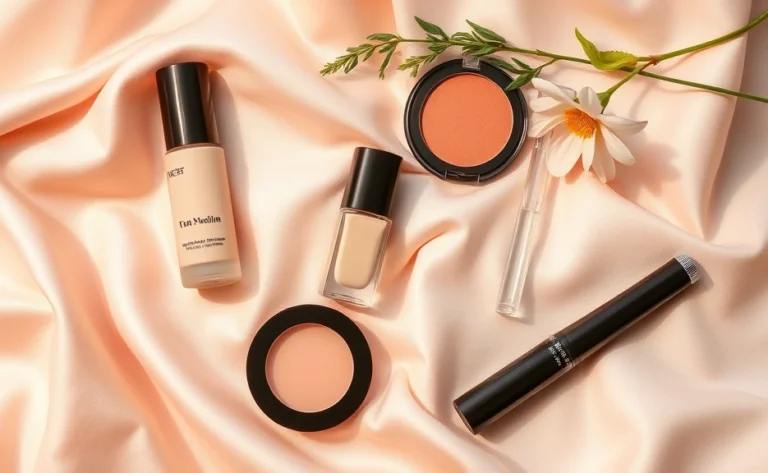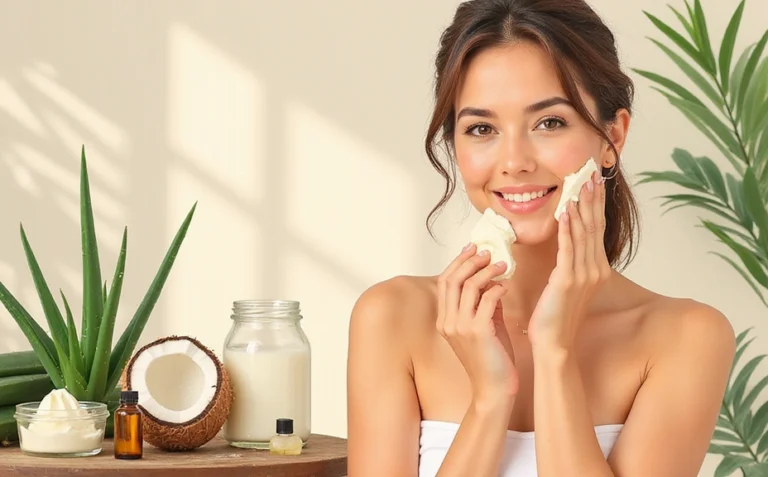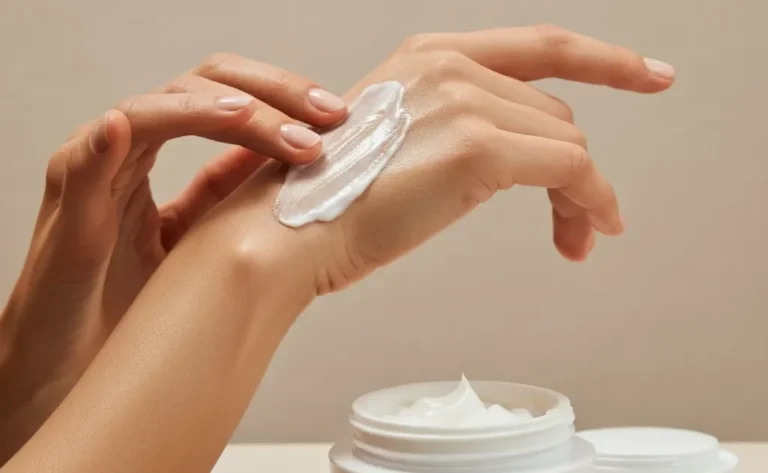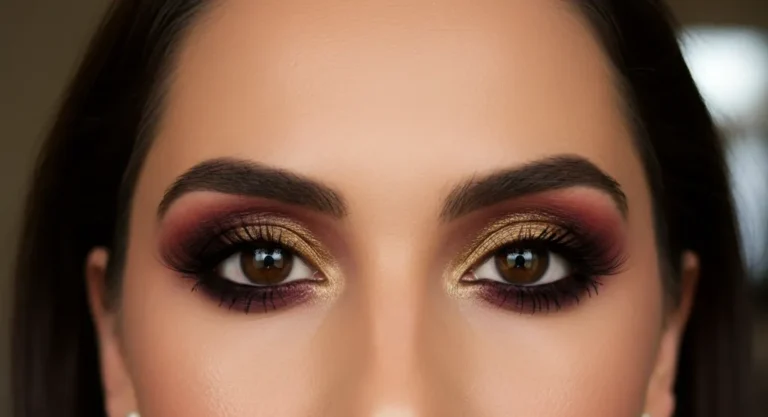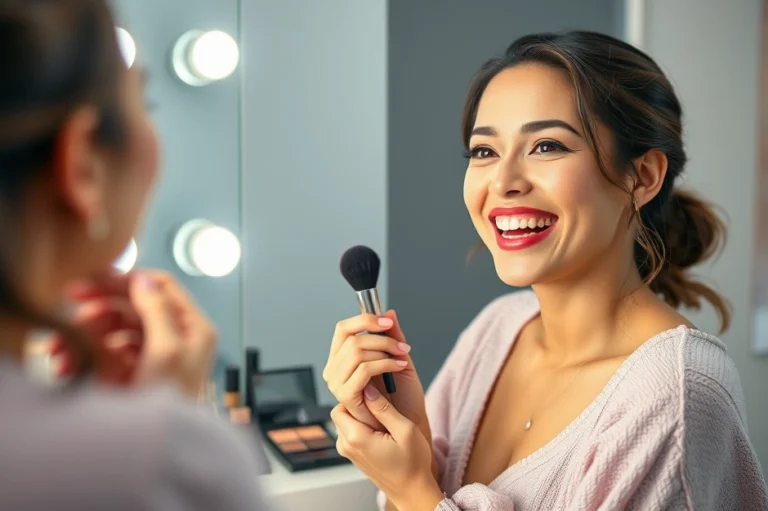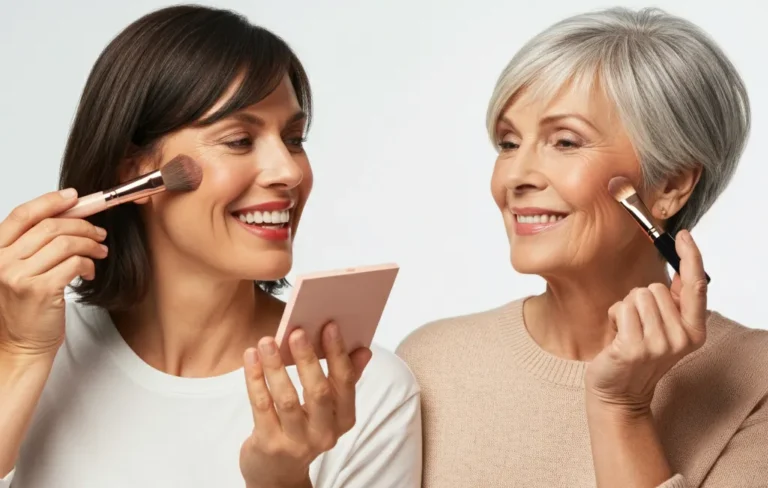The Truth About Anti-Aging Creams for Women Over 50: What Really Works
As we age, our skin changes, bringing new challenges and care needs. The market is full of anti-aging creams, all promising results. For women over 50, finding the right product can feel overwhelming. With so much hype, how do you know what really works? The key is focusing on science-backed solutions and keeping realistic expectations. While no cream can stop aging, the right products can make a big difference in how your skin looks and feels.
This guide covers the best ingredients, skincare practices, and tips to help you choose the right anti-aging creams for women over 50. Whether you’re new to skincare or refining your routine, it has everything you need to make informed choices.
The Building Blocks of Effective Anti-Aging Creams
When it comes to anti-aging skincare for mature skin, not all products are created equal. The true power of a cream lies in its active ingredients. Here are some of the most effective elements to look for:
1. Retinol
Retinol is a form of Vitamin A that has been clinically proven to boost cellular turnover, reduce the appearance of fine lines, and improve skin texture. For women over 50, it can help minimize wrinkles and sun damage, leaving the skin looking smoother and more youthful. Keep in mind that retinol can be potent, so start with a low concentration and increase gradually to avoid irritation.
2. Peptides
Peptides are amino acids that serve as the building blocks of proteins like collagen and elastin—key components for firm and plump skin. As we age, natural collagen production decreases, leading to sagging skin. Peptide-infused creams stimulate collagen synthesis, helping to restore elasticity and reduce the visible signs of aging.
3. Hyaluronic Acid
Hyaluronic acid is a superstar when it comes to hydration. This molecule attracts and retains moisture, plumping up the skin and reducing the appearance of fine lines. For mature skin, which often becomes drier with age, incorporating hyaluronic acid into your skincare routine is essential for maintaining a healthy glow.
4. Antioxidants
Antioxidants such as Vitamin C, Vitamin E, and green tea extract protect your skin by neutralizing free radicals—unstable molecules that contribute to premature aging. Vitamin C, in particular, is known to brighten the skin, fade dark spots, and promote even skin tone, making it an excellent addition for mature skin.
The Importance of Hydration, Sun Protection, and Formula Specificity
Youthful skin isn’t just about fighting wrinkles. Proper hydration is key to maintaining a supple and radiant complexion. Look for creams that contain humectants (ingredients that draw moisture to the skin) and occlusives (ingredients that lock moisture in). Hydrated skin not only feels better but also looks smoother and healthier.
Sun protection is crucial. UV damage is a leading cause of premature aging, so daily SPF is a must. Many anti-aging creams now include SPF, combining protection with simplicity.
Choose products made for mature skin. Ingredients like retinol can be harsh without hydrating agents, but age-specific formulas target the unique needs of aging skin for better results.
Debunking Myths About Anti-Aging Creams
There’s plenty of misinformation out there about anti-aging creams. Here are some common myths—and the truth you need to know:
- Myth 1: Anti-aging creams deliver instant results.
Many marketing campaigns make bold claims, but the reality is that it takes time for active ingredients to show visible results. Consistency is key. Most products will require several weeks—or even months—of regular use for noticeable improvement.
- Myth 2: Anti-aging creams can reverse aging entirely.
No skincare product can turn back the clock. While anti-aging creams can alleviate wrinkles, boost hydration, and brighten the skin, they work to enhance your skin’s overall appearance rather than erase the effects of time.
- Myth 3: Expensive products are always better.
While luxury creams often include innovative ingredients and elegant packaging, effectiveness isn’t solely determined by price. Affordable options with the right active ingredients can be just as effective as high-end brands.
Tips for Choosing the Right Anti-Aging Cream
With so many options, narrowing down the best anti-aging creams for women over 50 can feel daunting. Follow these tips to make the process easier:
- Look for Active Ingredients: Check the product label for proven ingredients like retinol, peptides, hyaluronic acid, and antioxidants.
- Consult a Dermatologist: A professional can assess your skin’s needs and recommend specific products tailored to you.
- Read Reviews: Real user experiences can provide valuable insights into a product’s effectiveness, texture, and potential drawbacks.
- Patch Test: Always test new products on a small area of skin to avoid any adverse reactions.
- Consider Your Budget: There are excellent options across all price ranges—don’t feel pressured to splurge if it’s not within your means.
Affordable vs. Luxury Options
Whether you’re seeking budget-friendly or luxurious anti-aging creams, there’s something for everyone:
- Affordable Options:
- Olay Regenerist Retinol 24 Night Moisturizer (Rich in retinol and budget-friendly)
- Neutrogena Rapid Wrinkle Repair Cream (Targets fine lines with hyaluronic acid and retinol)
- Luxury Picks:
- La Mer Crème de la Mer (Renowned for its rich, hydrating properties)
- SkinCeuticals Triple Lipid Restore 2:4:2 (A luxurious blend of lipids to restore your skin barrier)
Aging Gracefully With Confidence
At the end of the day, anti-aging creams are just one part of your overall wellness and self-care routine. Aging gracefully is about feeling confident in your own skin and celebrating the experiences that make you who you are. While using effective skincare products can help enhance your natural beauty, true beauty radiates from within. Prioritize what makes you happy and healthy, and remember that confidence is the ultimate beauty secret.
By understanding the science behind anti-aging creams and selecting products that align with your needs, you can create a routine that empowers your skin—and yourself.
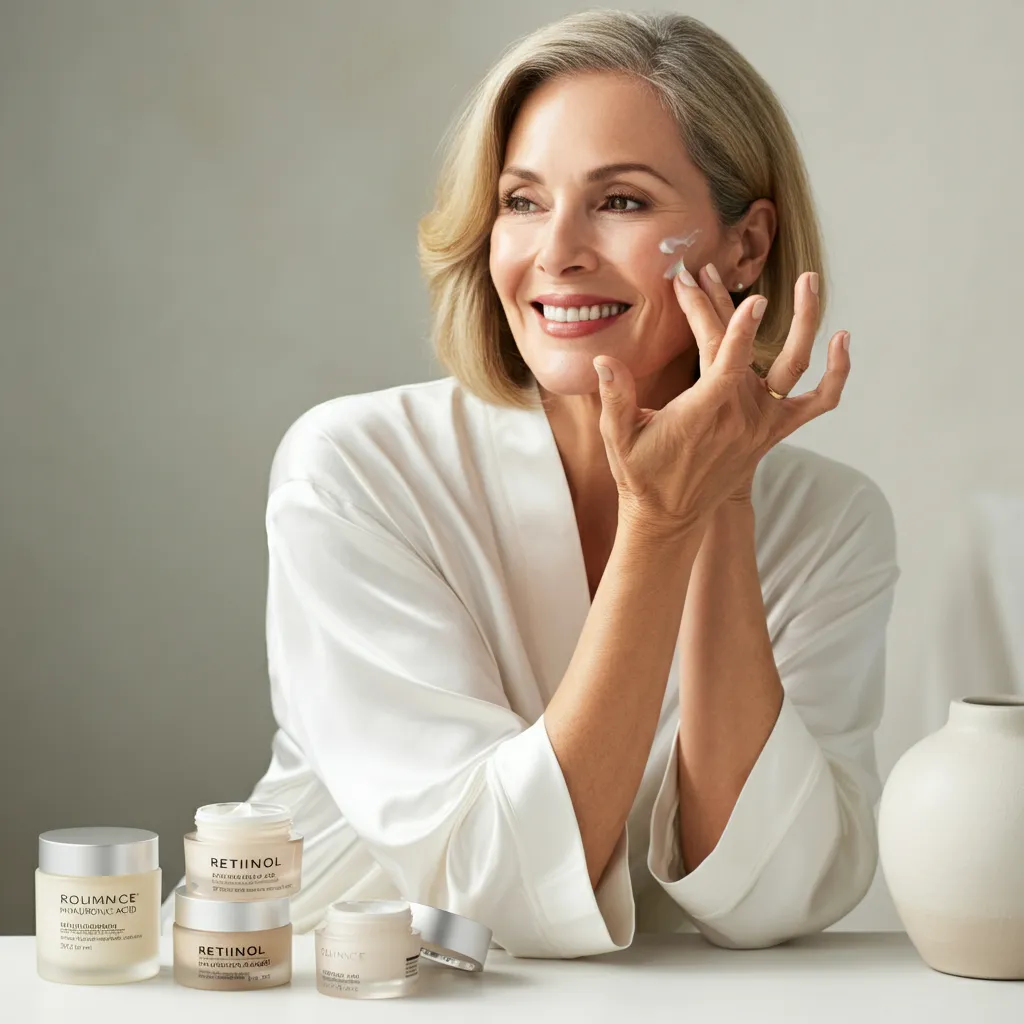
Additional Lifestyle Habits to Support Anti-Aging
While anti-aging creams play an important role in maintaining youthful, healthy skin, a well-rounded approach to your overall lifestyle can significantly enhance their effects. Taking care of your skin from the inside out is just as important as the products you apply externally. Here are some additional lifestyle habits to support your anti-aging goals:
1. Maintain a Balanced Diet
Your diet impacts your skin, so eating nutrient-rich foods can improve your complexion. Omega-3s in salmon, walnuts, and flaxseeds keep skin hydrated and supple. Antioxidant-rich fruits and veggies like berries, spinach, and kale fight free radicals and reduce inflammation. Staying hydrated with plenty of water also boosts skin health.
2. Get Enough Sleep
Sleep is called “beauty rest” for a reason. While you sleep, your body repairs itself, including your skin. Poor sleep can speed up aging by raising stress hormones and slowing cell renewal. Aim for 7-9 hours of sleep each night and try a silk or satin pillowcase to reduce friction and prevent wrinkles.
3. Manage Stress Effectively
Chronic stress speeds up aging by causing hormonal imbalances and skin inflammation. To keep your mind and skin calm, try meditation, yoga, or deep breathing. Spend time on hobbies and social connections that bring you joy. A positive mindset can help you look more youthful.
4. Exercise Regularly
Physical activity enhances circulation, delivering oxygen and essential nutrients to your skin. Exercise also promotes lymphatic drainage, helping to remove toxins that can contribute to a dull complexion. Activities like jogging, dancing, or even walking can leave your skin looking more radiant and energized.
5. Limit Alcohol and Avoid Tobacco
Excessive drinking and smoking harm your skin. Alcohol dehydrates, highlighting wrinkles, while smoking reduces oxygen and depletes nutrients like vitamin C. Both speed up aging and cause uneven skin tone. Cutting back or quitting will help your skin in the long run.
By adopting these lifestyle habits in conjunction with a targeted anti-aging skincare routine, you can further support the health and resilience of your skin as you age. Taking care of your body holistically not only enhances your skin’s appearance but also promotes overall well-being, helping you to age gracefully and confidently.

